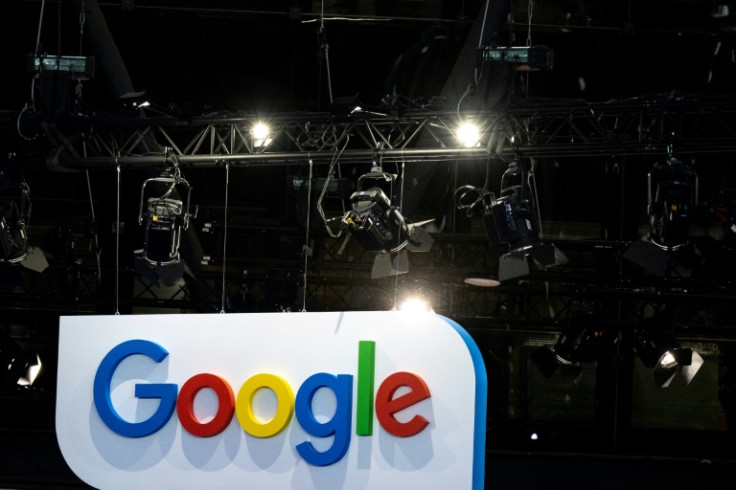The US follows in Europe's footsteps as it targets Google in biggest American antitrust case in decades
Whilst the case focuses on Google's monopoly over online search, other areas of the business are being scrutinised as well on both sides of the Atlantic.

Last week, the opening salvo was fired in Washington DC in the biggest US antitrust trial against a tech giant in decades. Some are calling it the "first (US) courtroom battle of the modern internet era".
The litigation seems to be the latest example of the US Department of Justice following a trend already set across the pond, in suits instigated against Google by the EU and the UK over the last decade or so.
DOJ (US Department of Justice) v Google was first filed in 2020 but is just now seeing the inside of a courtroom. The case alleges that "for years, Google has accounted for almost 90 per cent of all search queries in the United States and has used anti-competitive tactics to maintain and extend its monopolies in search and search advertising".
The crux of the Attorney General's argument is that Google deploys a slew of exclusionary practices to illegally lock up avenues through which end-users can access other search engines. This results in harm to competition and consumers, reducing the ability of innovative new companies to develop, compete and discipline Google's behaviour.
Erika Douglas, an associate professor of law at Temple University, suggested that the US has fallen behind the European Union in regulating Big Tech. Her research focuses on legal theory's application to new technology.
Since 2010, the EU has investigated multiple antitrust complaints against Google accusing the tech giant of abusing its dominant position in breach of the EU's competition laws.
Specifically, back in 2010, the European Commission (EC) was already tackling Google's dominance in the search market, through a case centring on the allegation that Google search gave dominance to Google shopping over other providers, in its search results.
Eventually, in 2017, Google was found guilty and fined £2.1 billion (€2.4 billion), the largest such antitrust fine issued by the EC.
Similarly, last year, in September 2022, the EU and the UK initiated a £22 billion (€26 billion) case against Google alleging anti-competitive behaviour in the digital advertising market.
The EU suit alleged Google abuses its power in the ad tech market, which coordinates the sale of online advertising space between publishers and advertisers.
"Publishers, including local and national news media who play a vital role in our society, have long been harmed by Google's anticompetitive conduct," stated Damien Geradin, of the Belgian law firm Geradin Partners, which is involved in the EU case.
In June 2023, the EU ordered Google to divest part of its advertising business, to enable its monopoly over ad tech to be broken up. Google has a 28 per cent share of all global ad revenue.
The EU has given Google a chance to respond, and the tech giant for its part denies having a detrimental impact on the market, hence the legal drama is still ongoing.
Speaking shortly before the ruling, Margrethe Vestager, the EU competition commissioner underscored the challenge from the point of view of regulators, saying: "Each time a practice was detected ... Google simply modified its behaviour so as to make it more difficult to detect but with the same objectives [and] with the same effects."
Interestingly, in January 2023, the United States seemed to follow suit again and filed another complaint against Google which has yet to be litigated in court. This one alleges that Google has maintained an unlawful monopoly in search and search advertising. Specifically, it claimed Google maintains the monopoly through the following means:
- Exclusivity agreements that forbid the preinstallation of any competing search service.
- Arrangements that force preinstallation of its search applications in prime locations on mobile devices and make them undeletable, regardless of consumer preference.
- Long-term agreements with Apple that require Google to be the default – and de facto exclusive – general search engine on Apple's popular Safari browser and other Apple search tools.
- Generally, using monopoly profits to buy preferential treatment for its search engine on devices, web browsers and other search access points, creates a continuous and self-reinforcing cycle of monopolisation.
This transatlantic trend of increased regulatory scrutiny, not only towards Google but also of other tech giants, continues off the back of precedence established by past litigation.
Most recently, earlier this month in fact, the EU targeted six major technology companies it defines as online "gatekeepers" that must face the highest level of scrutiny under the 27-nation bloc's Digital Markets Act. These companies are Apple, Amazon, Microsoft, Google parent Alphabet, Facebook owner Meta and TikTok parent ByteDance.
The tech giants will be expected to comply with new digital rules aimed at reining in the market power of online companies. The rules will enforce huge fines in case of infringement and in some cases, may require the sale of parts of a business as a condition of continued operation in the EU.
© Copyright IBTimes 2025. All rights reserved.






















